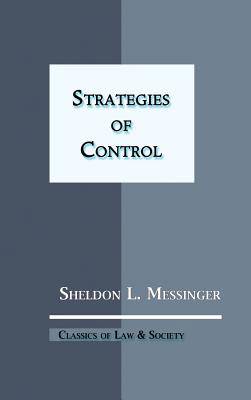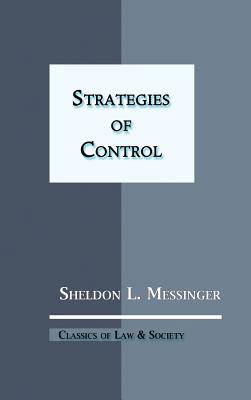
Door een staking bij bpost kan je online bestelling op dit moment iets langer onderweg zijn dan voorzien. Dringend iets nodig? Onze winkels ontvangen jou met open armen!
- Afhalen na 1 uur in een winkel met voorraad
- Gratis thuislevering in België vanaf € 30
- Ruim aanbod met 7 miljoen producten
Door een staking bij bpost kan je online bestelling op dit moment iets langer onderweg zijn dan voorzien. Dringend iets nodig? Onze winkels ontvangen jou met open armen!
- Afhalen na 1 uur in een winkel met voorraad
- Gratis thuislevering in België vanaf € 30
- Ruim aanbod met 7 miljoen producten
Zoeken
Omschrijving
The groundbreaking study of transitions and control in the California prison system has been extensively read, cited, and quoted in unpublished form--and is now readily available worldwide. A compelling part of the canon of studies in penology, criminology, sociology, and organizational theory, this new edition of STRATEGIES OF CONTROL adds a 2016 foreword by Howard S. Becker and afterword by Jonathan Simon. Considered influential to two generations of scholars worldwide, Messinger's thesis examining prison systems' organization and reform--or in some ways, regression--is said to anticipate Erving Goffman's and Michel Foucault's writings on "total institutions" by many years, and raised themes that only years later would fully resonate in criminology and sociology. /-/ In the foreword, Becker notes that this is a "a masterful analysis of a systematically connected group of organizations, seeing them not as separate entities, but as a system whose organizational routines and peculiarities we couldn't understand if we didn't know their external connections as well as their internal workings." Its methodology was painstaking: "The officials of the new system's components, especially the wardens of the individual prisons, had [many] questions on their minds. You couldn't answer those questions by observing one of those prisons for a year or two." Not so in the author's decade of research leading up to this work. Indeed, Becker concludes, "Messinger's study provides the blueprint for more accurate and persuasive analyses of large organizations of every kind." /-/ Simon writes in an afterword that this book remains "an important contribution to understanding the nature of imprisonment and more broadly to the study of punishment in modern society," providing "a crucial background for rethinking the recent history of prisons and particularly the rise of mass incarceration, which has seen the proliferation of multi-prison systems, extensions of bureaucratic management within prisons, and the abandonment of rehabilitation as a central justification for punishment." Simon adds: "Creating a sociological analysis for such a complex extended network required a break with traditional sociological thinking," thus producing an "analytic shift from studying the 'prison system' to studying the broad array of agencies and authorities that made up 'the correctional establishment.'" /-/ "Policymakers, practitioners, and scholars who are interested in a better understanding of the relationship between correctional systems, their comprising organizational components, and practices will learn much from this study. It provides a truly original contribution to our sociological understanding of how formal organizations comprising a correctional system evolve and operate through a series of relationships ultimately producing control of the system itself, its prisons, and its inmates. Given the current focus on evidence-based justice, Messinger's documentation and unique interpretation of the organizational dynamics, interconnections, and dependencies within correctional systems are clearly relevant and crucial to the successful implementation of such 'translational criminology' reforms." -Thomas G. Blomberg, Dean and Sheldon L. Messinger Professor of Criminology, College of Criminology and Criminal Justice, Florida State University; Author, 'Advancing Criminology' /-/ Part of the Classics of Law & Society Series from Quid Pro Books, this foundational book is at last available to a general audience, researchers, and students.
Specificaties
Betrokkenen
- Auteur(s):
- Uitgeverij:
Inhoud
- Aantal bladzijden:
- 242
- Taal:
- Engels
Eigenschappen
- Productcode (EAN):
- 9781610273558
- Verschijningsdatum:
- 25/07/2016
- Uitvoering:
- Hardcover
- Formaat:
- Genaaid
- Afmetingen:
- 152 mm x 229 mm
- Gewicht:
- 526 g

Alleen bij Standaard Boekhandel
+ 122 punten op je klantenkaart van Standaard Boekhandel
Beoordelingen
We publiceren alleen reviews die voldoen aan de voorwaarden voor reviews. Bekijk onze voorwaarden voor reviews.











